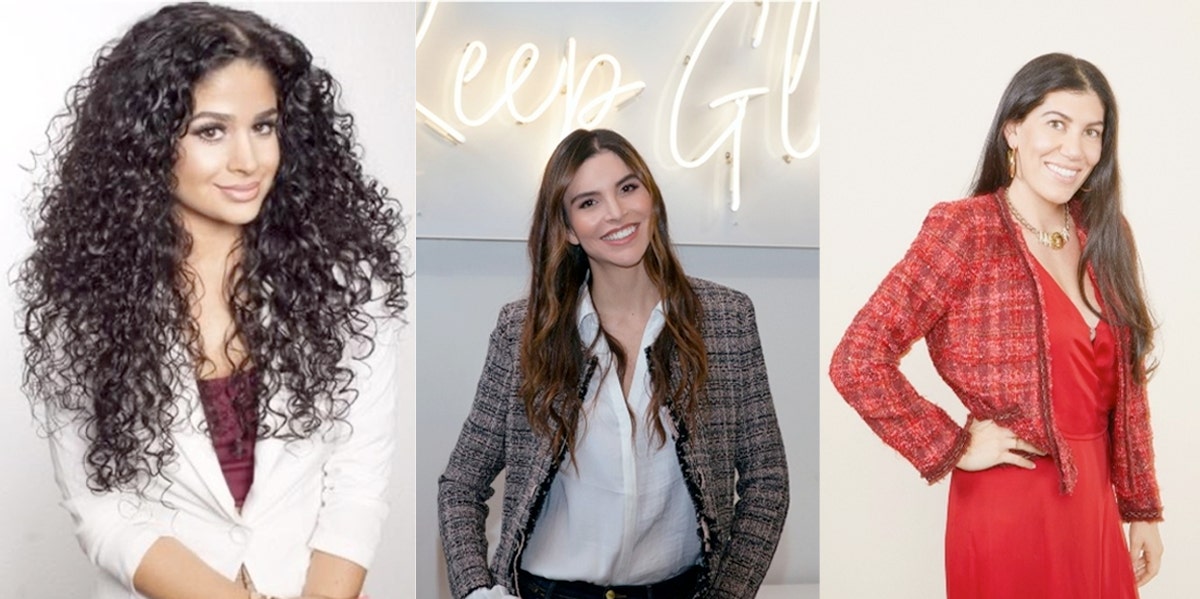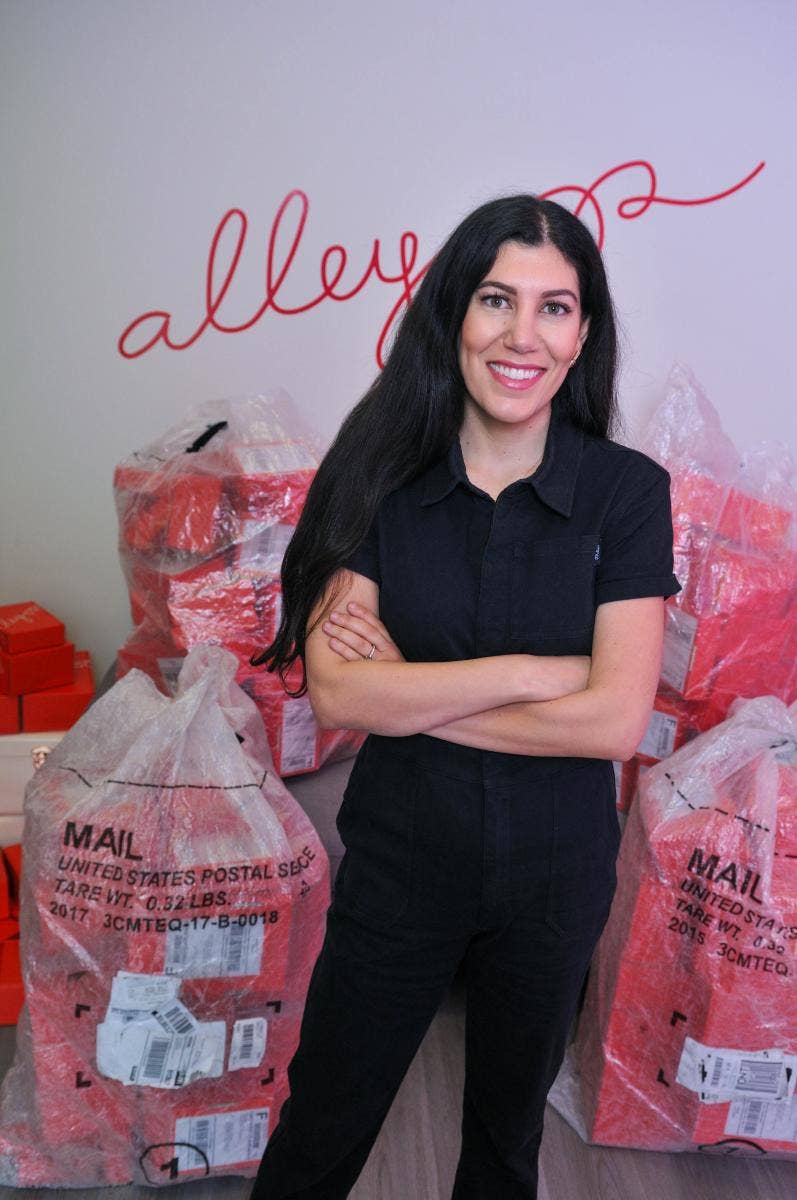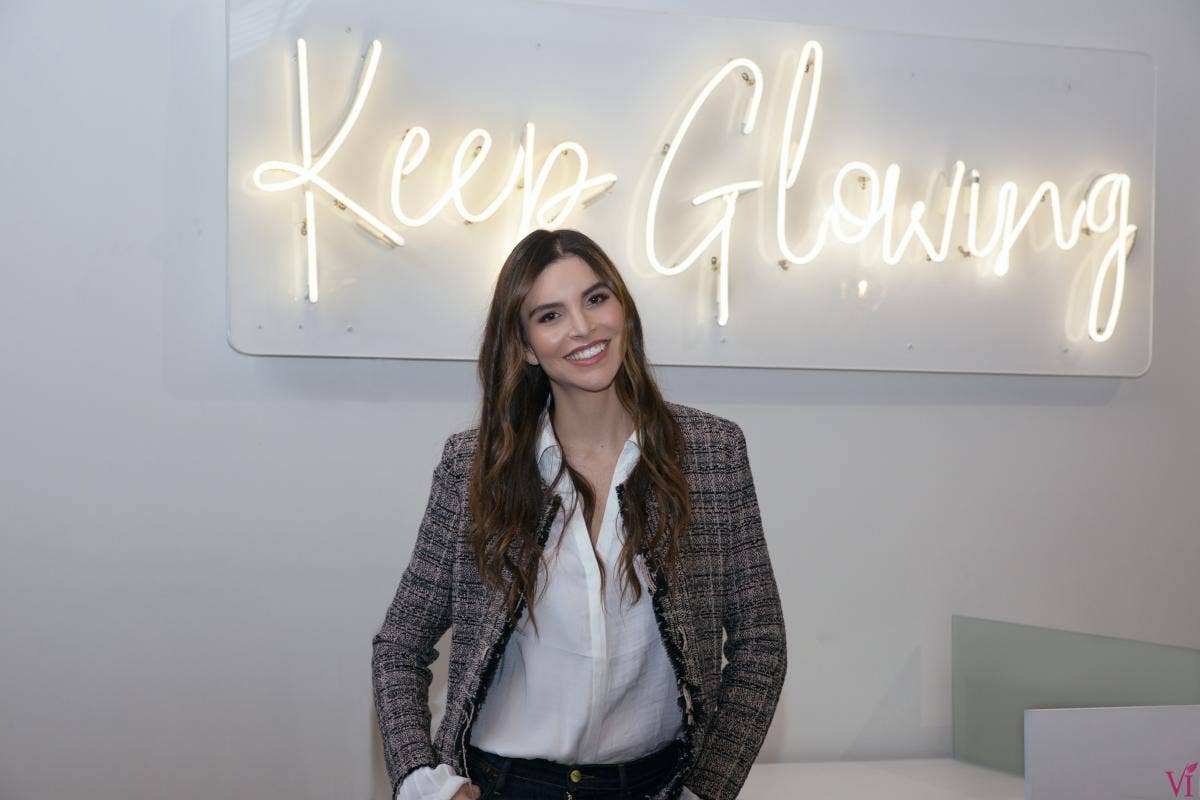We Spoke To Three Female CEOS Giving The Male-Dominated Beauty Industry A Much-Needed Makeover
Real-life girl bosses.
 Coded PR
Coded PR March is all about celebrating women past and present for Women’s History Month and International Women’s Day.
And who can better attest to the power of being a woman than female CEOs and founders?
Though the beauty industry is funded predominately by women and is often responsible for the beauty standards and pressures placed on women, men still dominate most of the top executive positions in this space.
Is it any wonder that many women and other minorities feel underrepresented by the beauty industry? Fortunately, some minority-led beauty brands are seeking to give this industry a much-needed makeover.
Meet Alleyoop, Bounce Curl, and VI Derm Beauty, three female-founded beauty brands celebrating beauty in diversity with their inclusive products that seek to democratize beauty.
YourTango spoke exclusively to the three minority female founders behind these brands who are using their beauty brands to empower other women.
Leila Kashani, founder of Alleyoop, a cosmetic "efficiency" skincare brand
Women are so often pressured to take care of their families, push ahead in their careers, and keep up with friends all while looking flawless.
Leila Kashani, the founder of Alleyoop, created her brand with the mission of simplifying women’s beauty routines so they could make room for the more important parts of life.

As a working mom, maintaining a rigid, 20-step beauty routine was simply not a priority, even if mainstream beauty brands tried to convince her otherwise.
“[They made] me feel like I was failing in some way,” Kashani says of other beauty brands. “But quickly I realized I was not failing at all, it was the beauty industry that had failed me.”
Kashani built Alleyoop with the goal of giving women amazing products to pamper themselves without taking up too much of their time or cosmetics bags.
“I want to remove the pressure they’re feeling from peers, society, brands, or whoever to pile on products and spend hours in front of a mirror, and instead simply arm them with the essentials they need to feel their best,” Kashani says.
“Your frizz-free hair or perfectly winged liner isn’t what makes you amazing. And they definitely shouldn’t be what holds you back from tackling everything else in your life.”
Marya Khalil, CEO of VI Derm Beauty, a scientifically-engineered skincare brand
Awareness that women have more going on in their lives than complicated beauty routines is something plenty of brands lack.
For Marya Khalil, CEO of VI Derm Beauty, building a brand that understands the pressures women face is a cause that hits close to home.

She took over her father’s company at just 25-year old after his unexpected passing. “My mom’s mortgage needed to be paid, amongst a million other things. I was in over my head, scared I was going to fail,” Khalil tells us. “That desire to take the best care of my family and keep my father’s memory alive is what empowered me to keep pushing.”
Now, years later Khalil is a mother and wife, and believes that women can have it all if they are given the right support and empowerment to do so,
“Things will ebb and flow, and it takes time to get into a rhythm,” she says, “It won’t be perfect. It will get ugly at times.”
For Khalil, that empowerment came at an early age, “I grew up in a household with a Middle Eastern father who never once made me feel less than because I wasn’t a boy.”
The value and worth her parents fostered in her pushed her to greatness, but it wasn’t always easy.
Struggling with cystic acne as a teen, Khalil struggled to find treatments that were suitable for her olive-toned skin until her father created VI Peel.
This coupled with the anti-Islamic discrimination she experienced in school and college post 9/11 was enough to tear down her confidence.
“I was severely shy and depressed,” she says. “I felt so uncomfortable in my own skin.”
By carrying on her father’s legacy and expanding VI Derm Beauty to be inclusive of all skin tones and types, Khalil is encouraging all women to rediscover the confidence she once lost.
Merian Odesho, founder of Bounce Curl, a chemical-free clean haircare brand.
This push back against the conformity and homogeneity many women are pressured to partake in shows just how badly we need strong female leads to shake up the beauty industry.
For Merian Odesho, founder of clean haircare brand Bounce Curl, encouraging other women to embrace their natural curls is her way of pushing back against societal standards that deem curly hair anything less than beautiful.

“No one should feel they have to conform to a beauty standard set by others,” Odesho tells us. “I want to create products made with clean ingredients that can style, moisturize, and hold people’s hair.”
As a Middle Eastern woman, Odesho knows what it’s like to not be the so-called “norm” in the beauty industry. Her goal with Bounce Curl was to make products for all kinds of hair textures so women can easily access products made for them.
“All different ethnicities have different types of wavy, curly, and/or coily hair,” she says, “I want to create inclusive products for anyone regardless of your ethnic background.”
She spent years struggling to find products that would allow her to properly style her curls. This is an experience many women relate to as the beauty industry consistently neglects the specific needs of minority hair textures.
In college, Odesho would spend hours in chemistry labs mixing her own hair products which led to the formation of Bounce Curl.
Kashani, a Persian woman, had a similar experience growing up in a world that sometimes prevented her from loving herself. She wants women to define their own beauty, rather than have others decide what looks good.
She recalls being ashamed of her natural bushy brows as a teen, “It was then that I realized the universal standard of beauty that was being sold to us just wasn’t true,” she says, “You shouldn’t cover up something you love about yourself just because you aren’t seeing it all over Instagram.”
For Khalil, growing up in a Lebanese-Cuban household has been an asset rather than a hindrance
“I think the insecurity of growing up “different” and with acne has allowed me to connect with customers in a very special way,” she says, “I know how hard it is to be depressed about the way you look. And I also know how amazing it feels when you finally feel comfortable enough to leave the house without makeup on.”
But being a leading woman in business is about more than creating products for women. These female founders are using their brands to elevate the experiences of other women.
Odesho tells us that one of the founding principles of Bounce Curl is that beauty is shared.
“The company lives that belief by investing in and mentoring other women to help them start their own businesses,” she tells us.
Bounce Curl runs a non-profit initiative that has helped single moms, victims of domestic violence, and women suffering from chronic illnesses establish their own businesses.
Kashani tells us that though a small female-dominated team runs Alleyoop, the company knows they must listen to as many female voices as possible if they want to accurately represent women.
“We currently work with a team of over 200 women to help inform decisions around shade selections, formula improvements, product design, and everything in between,” she says, “The more diverse input we have, the more we can ensure our products are truly designed for every woman.”
Alleyoop are also conscious of the importance of diversity and inclusion in their advertising, “The more young girls are seeing people who look like them promoting brands and products, the more they’ll start to embrace what makes them unique and stop striving to fit an unrealistic mold,” Kashani says.
One look at Khalil’s company VI Peel’s social media tells a similar story by embracing a range of skin types and tones. But she is also cultivating a prideful next generation in another way, by raising her children to not let others define their worth.
She tells us, “All you can lean on is your own perseverance and strength.”
Alice Kelly is a writer living in Brooklyn, New York. Catch her covering all things social justice, news, and entertainment.

